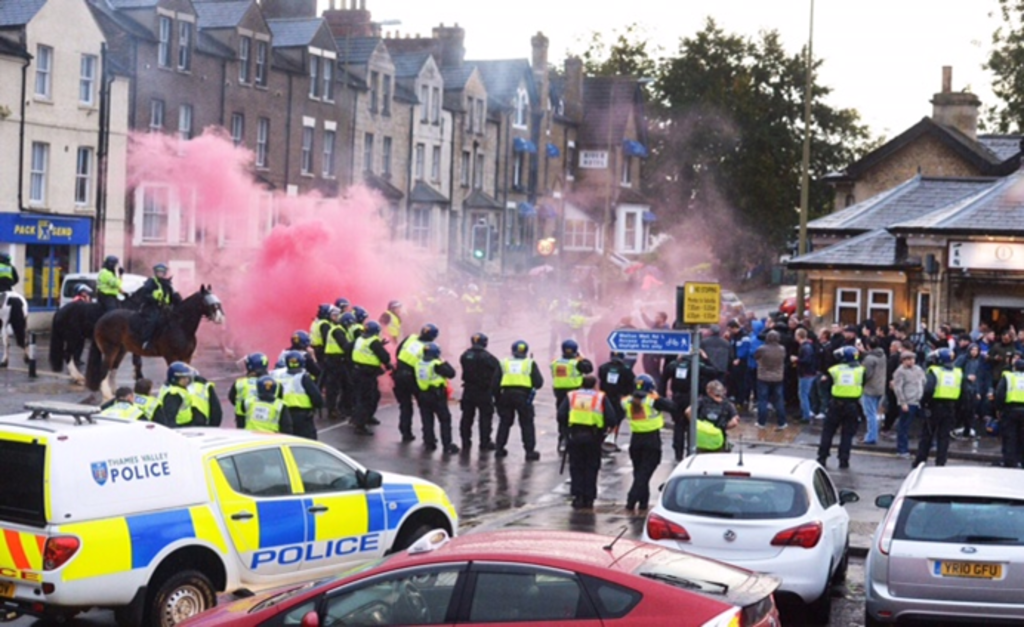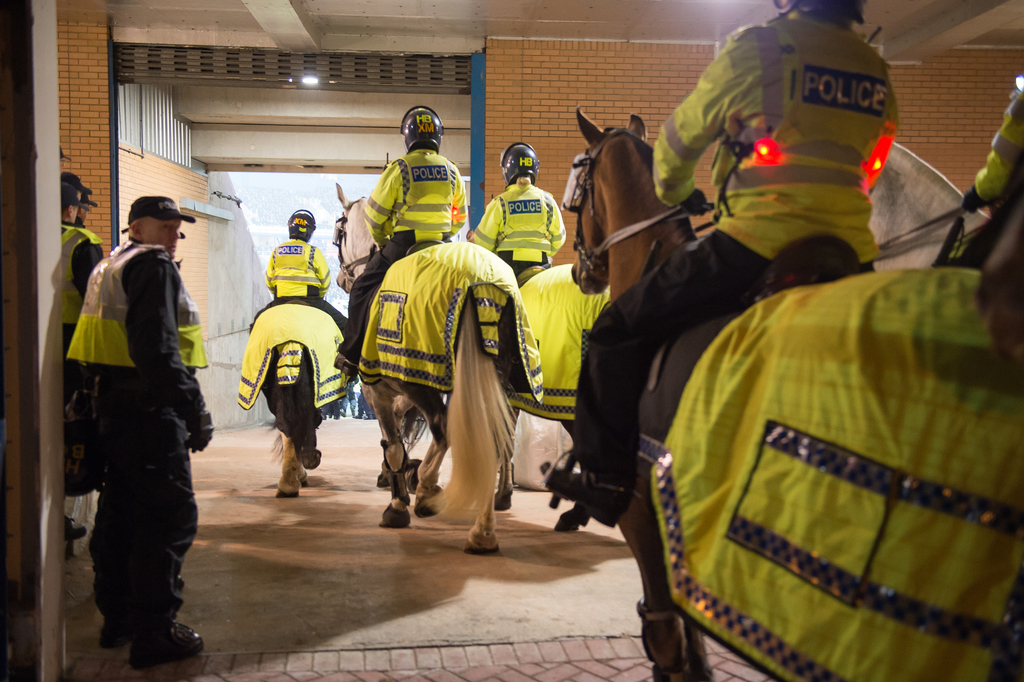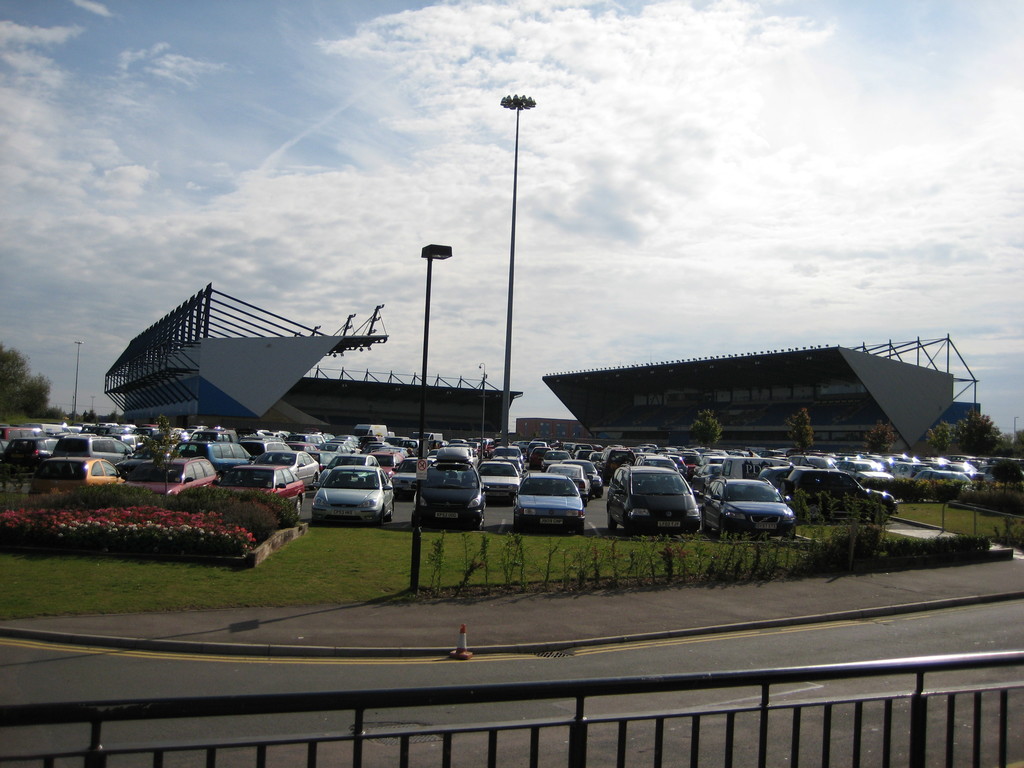
Brian Sims
Editor

Brian Sims
Editor
Alexander Barrett provides an insight into the large-scale security operation that Thames Valley Police must plan meticulously to ensure public safety during major football matches.
THAMES VALLEY Police (TVP) is the largest non-metropolitan police force in England and Wales. It polices the counties of Berkshire, Buckinghamshire and Oxfordshire, serving a diverse population of more than two million, plus the six million visitors who come to Thames Valley each year. Some of those visitors will be attending many of the large-scale events and festivals hosted in the region, such as Royal Ascot, Henley Royal Regatta and the Reading Music Festival. During the football season, TVP will also support the match-day operations of any number of football clubs in its territory, including football-league sides Reading FC, Milton Keynes Dons FC, Oxford United FC and Wycombe Wanderers FC.
TVP has a number of Dedicated Football Officers (DFOs), who will work closely with the clubs in the region throughout the year. Meetings are held following the summer release of the coming season’s fixture list. The club’s safety team, the local authority and the Police will discuss any concerns or issues, based on previous seasons' events, or expectations for the year ahead. A standardised set of categories is used by the Police to highlight the risk of disorder associated with individual football events. Categories should take account of the potential for disorder throughout the whole event area ‒ for example, inside, outside and away from the stadium.
The following categories are applicable:
One of the fiercest footballing rivalries TVP deals with is when Oxford United and their Wiltshire neighbours, Swindon Town FC, play each other. Before a ball has even been kicked in pre-season, the planning begins. Oxford United versus Swindon Town is often given a Category C rating. During the pre-season meetings with the football clubs, the Police may bring up any concerns they have for each event, but the final decision relating to moving any fixture date, or kick-off time always rests with the football club and its league authority. Principally, as football matches are hosted on private property, the Police are unable to dictate changes to their time and location.
Intelligence-gathering
About a month before any Police-attended match is scheduled, a further meeting will be held between football club officials and the DFO. Basic intelligence-gathering will begin around any known groups who are looking to use the sporting fixture as an opportunity for disruption. Other mitigating factors will also be considered, such as long-range weather forecast, or the teams’ respective form, which could affect crowd numbers attending. A policing plan will then take shape, which will cover the resources required, including personnel and equipment, with the subsequent cost for the operation falling in and around the home stadium footprint being agreed with the football club.
For the Oxford United versus Swindon Town matches, there is a match commander, known as ‘Silver’, and then ‘Bronze’ commanders, who are responsible for executing the different parts of the operation. Silver holds the decision-making responsibility for the Police throughout match day and has the authority to take ownership of the overall security operation at the event, should a major incident develop. Scenarios in which this might happen are discussed in advance and the handover protocols from the club’s match-day security teams are agreed.
The overall intention, which is emphasised to officers at their operational briefing when coming on duty in the morning, is to facilitate a football event that passes off peacefully, without disorder, and causes minimal disruption to local people and businesses. Even when Oxford United are playing Swindon Town, it must be remembered this fixture does not capture the attention of everyone, and the day represents a normal Saturday for the city and surrounding communities.
Policing style is manifested through officer activity, specifically in terms of how they communicate and interact with the public, their tactical deployments, the uniform they work in and the equipment they use. Bearing in mind that the overarching initial policing style for Oxford United versus Swindon Town matches is an open, communicative and community-oriented approach, public-order tactics and equipment are only to be deployed in a manner that is proportionate to the threat and risk presented. When it comes to the safety of the public within the home ground (Oxford Town’s Kassam Stadium) itself, this is the primary responsibility of the club safety officer and club stewards.
Deploying Police
Police officers are not deployed to stop or direct traffic unless in extraordinary circumstances, supported by relevant legislation. Police deployed to the match are able to use powers under The Football (Offences) Act 1991, which relates to crimes in or immediately around the playing area, though officers can also support club stewards and security under The Sporting Events Act 1985, which relates to offences involving pyrotechnics and/or alcohol at the event.
It is also possible that a Section 35 anti-social behaviour order may be enforced on the day of the match, which enables officers to disperse anyone found causing an offence from the immediate area for a designated period of time. For Oxford versus Swindon matches, there is often a Section 35 order in place, with a boundary drawn beyond the Oxford ring-road perimeter.
The match-day police operation itself generally runs in three distinct phases:
Community-focused policing
In the hours and days immediately following a match, offenders encountered on match day will have to be dealt with, and a standard debriefing will take place. While the aim of any operation like this is to avoid the need for deployment and arrest, the proactive, community-focused policing undertaken by forces in this country is shown to minimise conflict and disorder. It also supports the safety and enjoyment of the many thousands of supporters who attend sporting events, purely with the aim of supporting their team and enjoying their day.
All subsequent debriefings also help support intelligence and evidence-gathering ‒ for example, to secure Football Banning Orders (FBOs), and identify and/or address any welfare, partner and community issues that may require action. For these reasons, a debrief should happen with the club safety officer. The outcomes of debriefing should link into reviews of the operational ‘gold’ strategy and tactical planning, which are conducted during and at the close of the season. An example of this is to review the policing resource requirements against the match categories that were decided on at the start of the season.
The debriefing and review process looks to capture good practice and highlight areas for improvement. The implementation of any recommendations should be monitored, as these can be used as the basis for future planning and may be of use to the United Kingdom Football Policing Unit with regard to effecting changes to national policies and legislation.
Thames Valley Police always aims to work in partnership with club supporters and agencies, so it meets the official supporters group of Oxford United regularly in order to help deliver a safe and enjoyable match-day environment for all. The force also has a presence on social media, in order to engage with as wide an audience as possible and support the clubs with their community engagement and preventing trouble returning to the terraces of English football.
Alexander Barrett is communications officer for Thames Valley Police


